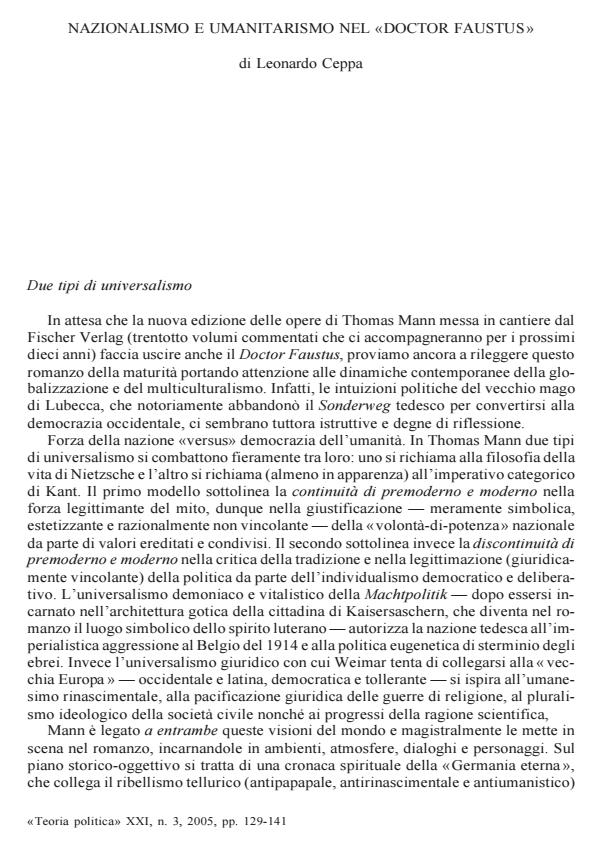Nazionalismo e umanitarismo nel Doctor Faustus
Titolo Rivista TEORIA POLITICA
Autori/Curatori Leonardo Ceppa
Anno di pubblicazione 2005 Fascicolo 2005/3
Lingua Italiano Numero pagine 13 P. Dimensione file 326 KB
DOI
Il DOI è il codice a barre della proprietà intellettuale: per saperne di più
clicca qui
Qui sotto puoi vedere in anteprima la prima pagina di questo articolo.
Se questo articolo ti interessa, lo puoi acquistare (e scaricare in formato pdf) seguendo le facili indicazioni per acquistare il download credit. Acquista Download Credits per scaricare questo Articolo in formato PDF

FrancoAngeli è membro della Publishers International Linking Association, Inc (PILA), associazione indipendente e non profit per facilitare (attraverso i servizi tecnologici implementati da CrossRef.org) l’accesso degli studiosi ai contenuti digitali nelle pubblicazioni professionali e scientifiche.
Strength of the nation as opposed to human democracy. In Thomas Mann two types of universalism fight fiercely between themselves. In appearance the first refers to Nietzsche’s philosophy of life, the other to the categorical imperative of Kant. But in reality Mann doesn’t withdraw from Nietzsche’s influence, neither does he convert to Kant. He rather converts Nietzsche himself to democracy. Mann doesn’t change from «Kultur» to «Zivilisation». He rather expands «Kultur» to the point of including «Zivilisation» itself. Mann doesn’t forsake the imperialism of the «will of power» to take on the universal logic of law. Rather he endevours to give a volontary base to the civic religion of democratic humanity. In other words Mann doesn’t relinquish myth to convert to science. Rather he humanizes and enlightens myth enriching it with a pedagogic and formative worth.
Leonardo Ceppa, Nazionalismo e umanitarismo nel Doctor Faustus in "TEORIA POLITICA" 3/2005, pp , DOI: